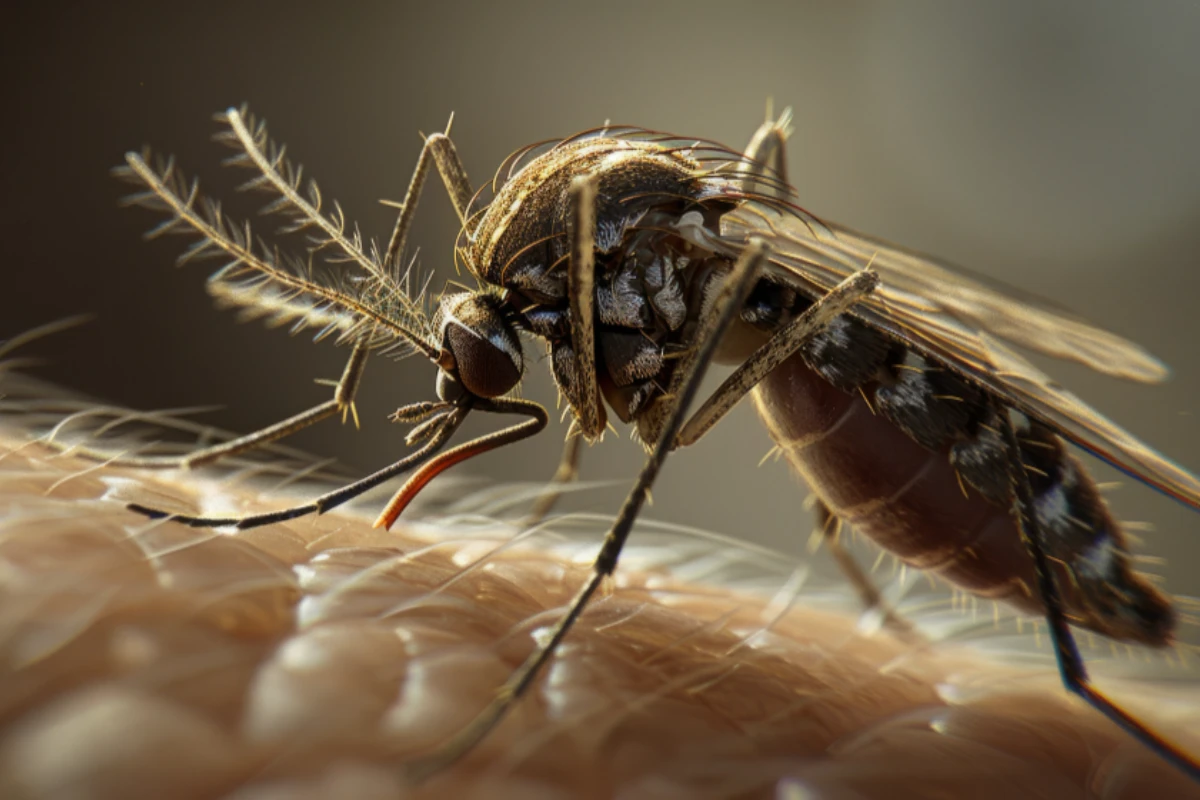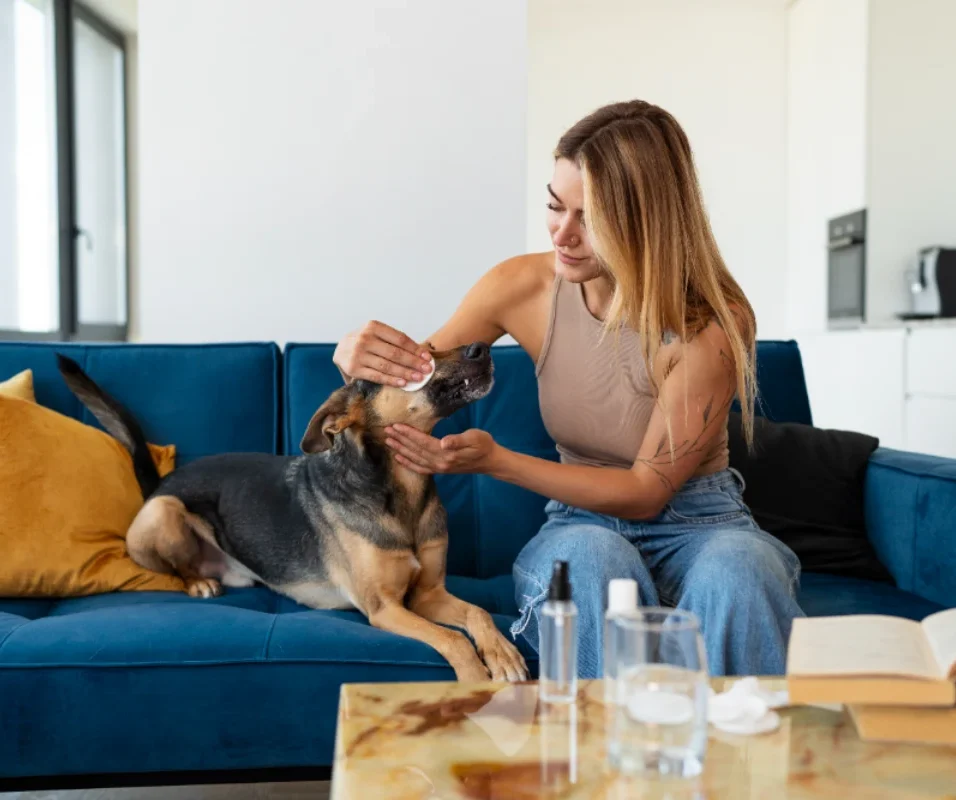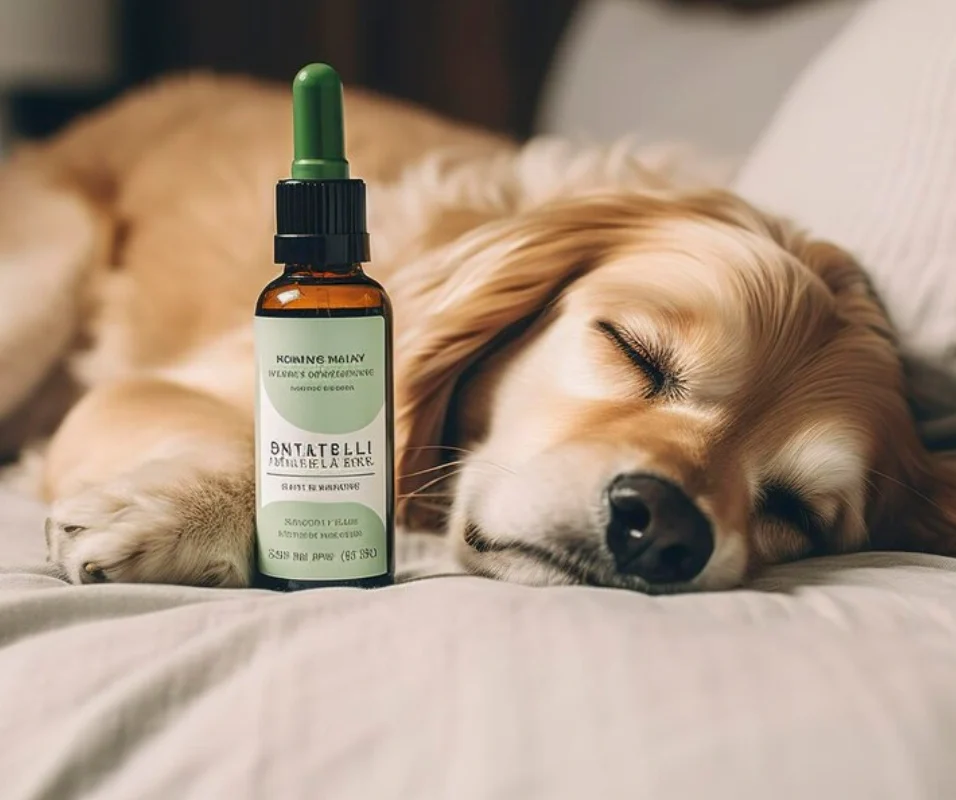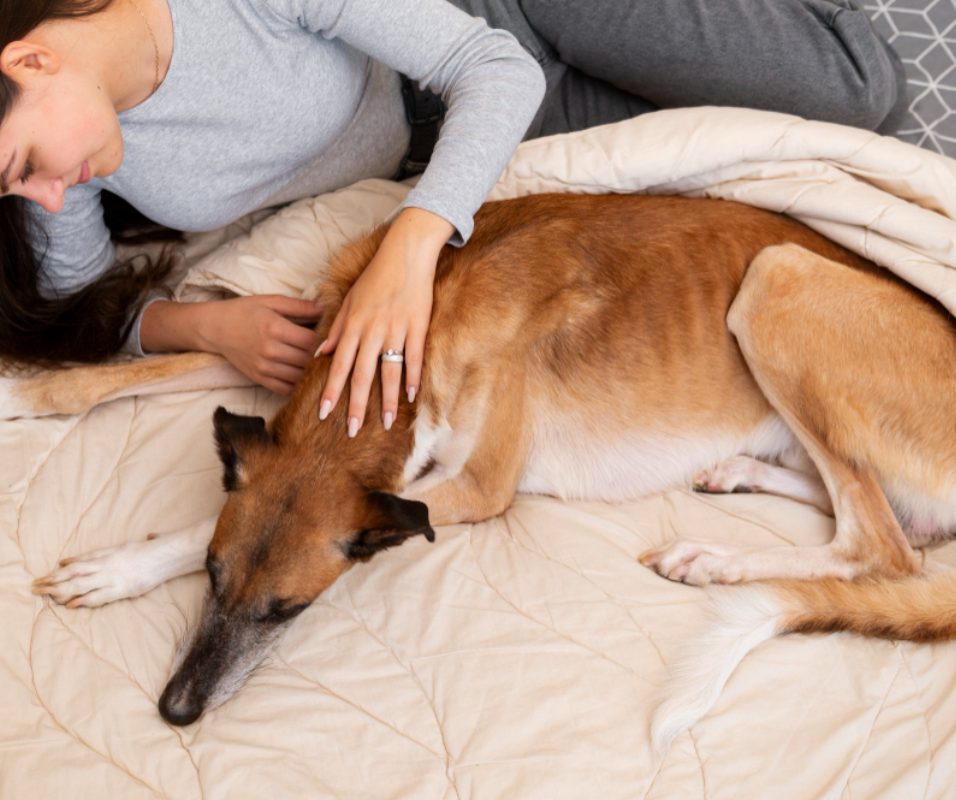Do you know mosquitoes can hurt your furry friend? It is truly such a very bad time when the weather becomes warmer and mosquitoes come in full force.
Owners of dogs are usually concerned about the diseases that these tiny pests may carry, which could be harmful to their dogs.
Mosquito bites usually cause nuisance to dogs; however, the disease that they may carry is somewhat dangerous. This comprehensive guide shall discuss “Do Mosquitoes Bite Dogs” whether mosquitoes are dangerous to dogs, the diseases that they can spread, prevention measures, and what should be done if your dog has been bitten.
Do Mosquitoes bite dogs?
If you know where mosquitoes thrive, then you can take measures to reduce the exposure of your dog to these pests.
Mosquitoes are small flying insects that like warm, wet environments. They can often be found living in standing pools of water, such as in ponds, marshes, or puddles. If you know where your mosquito lays its eggs and breeds, you will better understand how to defend your dog against them.
Where Do Mosquitoes Live?
- Standing Water
Mosquitoes lay their eggs in standing water. This can be a birdbath, clogged gutters, or even your pet’s water left sitting outdoors.
- Warm Weather
They tend to be more active during warmer months, mostly early morning and evening.
- Tall Grass and Shrubs
Mosquitoes usually sleep in tall grasses and shrubbery; hence, yards with dense vegetation are more inviting to them.
Is Mosquitoes are harmful to dogs?
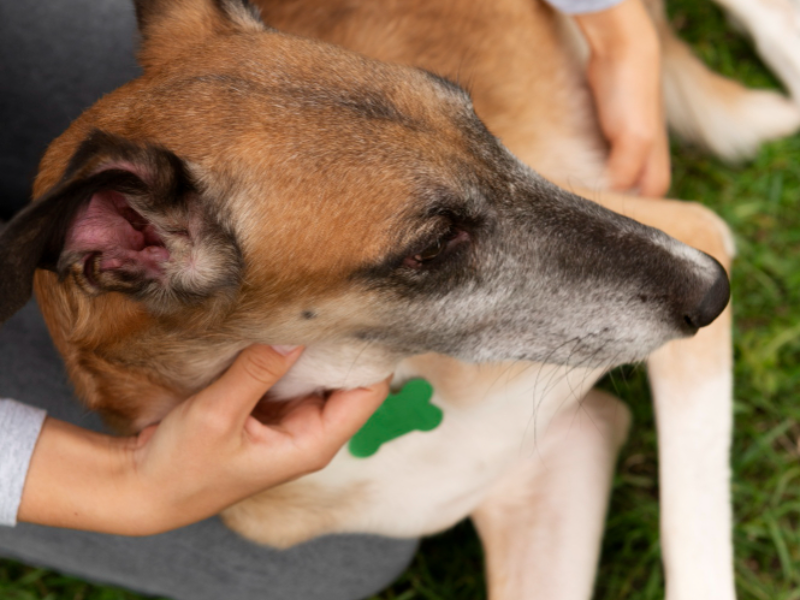
Yes, mosquitoes are harmful to dogs! They are drawn to animals for the same reasons as they are drawn to people, body heat, carbon dioxide, and some smells.
If a mosquito bites your dog, it can cause several signs, starting with the following ones.
- Redness
The surrounding area of the bite might turn red and inflamed.
- Swelling
Some dogs may swell in the local area due to a mosquito bite.
- Itchiness
Your dog can scratch or lick the affected area.
- Restlessness
Dogs might be irritable due to the itching.
If you notice these, it’s highly essential to watch out for your dog closely and take necessary precautions.
The Risks to be Understood
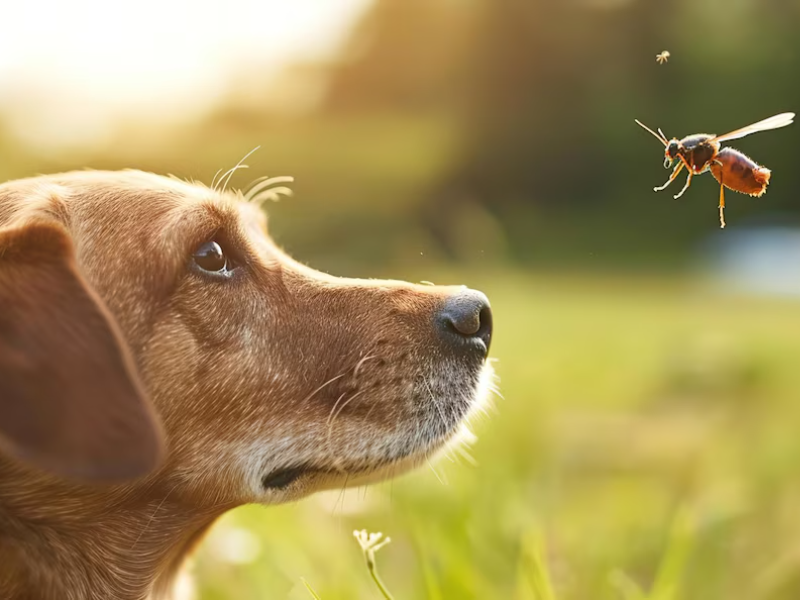
Even though minor irritation from the bites of mosquitoes is the only thing a majority of dogs will face, it is still worth knowing about these diseases. You can make your pet stay safe and prevent such harm through precautions.
- Protect Your Dog from Mosquito Bites
Here are some easy measures that can be taken to keep your dog away from mosquito bites:
- Keep Outdoor Time at Bay When the Chances Are Higher
Mosquitoes are naturally active in the morning and evening. Whenever possible, keep your dog indoors during these times.
- Apply Dog-Safe Repellents
Pet-specific mosquito repellents are generally available. Be sure to check with your veterinarian before using anything.
- Zone for Mosquito-Free Play
Choose a play area that is least likely to be in an area with standing water and tall grasses.
- Maintain Your Yard
Keep timing your lawn grass regularly and remove all hiding places where possible that mosquitoes will grow.
Maintain the region free of mosquitoes.
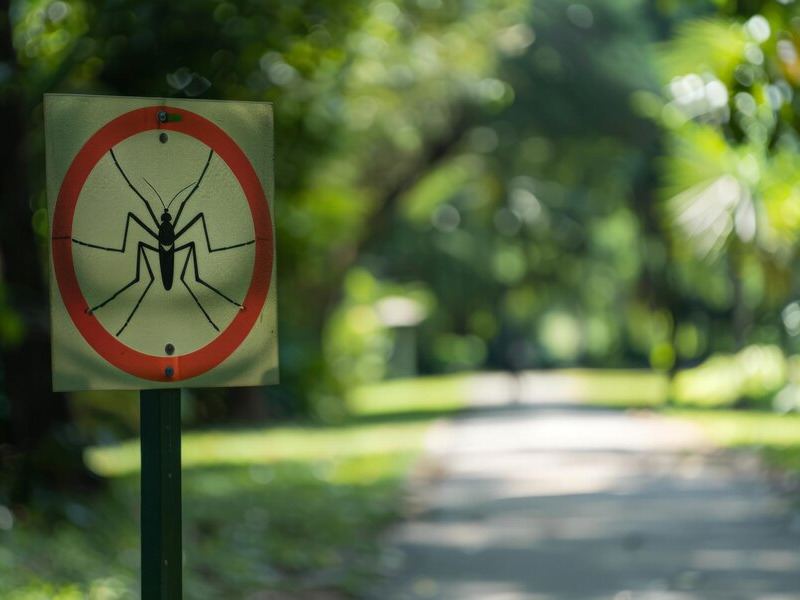
Maintain your yard, and this will help to reduce the mosquito population:
- Remove any chance of standing water
Check for old tyres, buckets, and clogged gutters, and remove them.
- Use Natural Repellents
Plant mosquito-repelling plants like citronella, marigolds, and lavender in your garden.
- Install Screens
This will screen your windows and doors to prevent the entry of mosquitoes.
Creating a mosquito-free environment around the dog is the biggest step towards protection.
What to Do If Your Dog Gets Bitten
When you suspect that your dog is bitten by a mosquito, follow the following:
Immediate Mosquito Bite Care
- Clean the Area
Wash the affected area with mild soap and water to avoid infection.
- Cool Compress
Apply a cool compress to the affected area. That helps in reducing swelling and relieving itching.
- Monitor Your Dog
Do monitor your pet for extreme signs such as swelling in the throat, difficulty breathing, and lethargy.
When to Take Your Dog to Your Veterinarian
When the mosquito bites your dog for more than 48 hours, or if your dog shows any of the following, you should take him or her to see the vet:
- Swelling
If it’s severe, affects your dog’s lymph nodes
- Difficulty in Breathing
Any signs of distress or labored breathing is very important to be checked on by your veterinarian
- Continuous Itching
Continuous scratching or signs of pain or discomfort
- Behavioural Changes
Your dog appears depressed and lethargic
Self-Treatment of Minor Bites
For instance, your dog merely has a minor, minor mosquito bite and is just fine.
Some minor bites management techniques are as follows.
- You can apply an anti-itch cream on the bitten site. Your veterinarian can advise you on the use of safe anti-itch creams that can be applied to the area of the bite.
- An oatmeal bath can soothe itch and irritation.
More Expert Insights
Veterinarians are advised to check your dog to keep your dog safe from mosquito-borne diseases. The vet advises staying up-to-date with the newest trends in mosquitoes in your area as well as voicing concerns to your vet.
Additional Resources
For more information, check out these resources:
Conclusion
Mosquitoes are a Notable threat to dogs, it’s not the only reason for discomfort but also that their bites transfer the disease. To keep your pet healthy and happy, you learn the risks that may be brought about by such creatures, take preventive measures, and know how to take care of your dog if it happens to get bitten. Proactive care is the best way to defend your pet from these pesky pests.
To enhance your dog’s diet, be sure to check out our blog on whether carrots are good for dogs.



